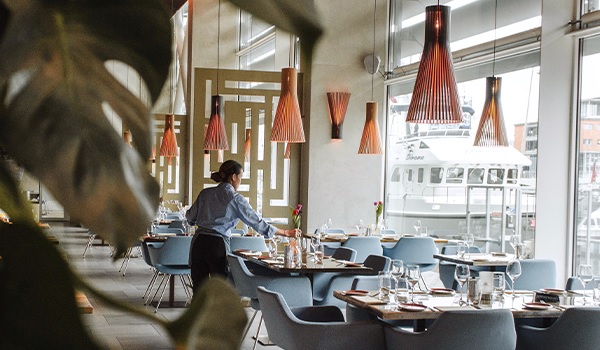
Hotels are in business to make money. . . and not just by charging for their rooms. Hospitality companies build multiple profit centers into their properties in hopes that guests will take advantage of paid amenities, also known as “incidentals.” Managing payment for incidentals can be a challenge for business travelers and their employers, so it is critical that you and your team members understand incidentals, how they are billed, and best practices for managing them.
What are hotel incidentals?
Incidentals, also known as hotel incidental charges, represent the cost of hotel amenities and services that are not included in room rates. These include:
- Restaurant and bar charges
- Room service
- Use of in-room phones for long-distance calls
- In-room movies
- Business center services, such as copying, mailing or guest package storage
- Laundry services and facilities
- In-room bottled water and mini-bar snacks
- Gift shop or on-site convenience store purchases
- On-site parking
Hotels typically track guest spending on incidentals by asking guests to provide their room number when purchasing or using these paid amenities. These charges are then added to the guest’s bill.
What is an incidentals deposit?
When a guest checks into a hotel, the hotel places a hold (or freeze) on the guest’s debit or credit card. This ensures that the hotel will get paid for the stay after checkout. In addition to the cost of the room (along with any taxes and fees), hotels also freeze a refundable incidentals deposit to cover the cost of any charges made to the room during the guest’s stay. The travel site Frommers.com also notes that even if you have prepaid for your room through a hotel brand or third-party booking site, the hotel will still require an incidentals deposit upon check-in.
While the unused portion of the deposit will eventually drop off the guest’s debit or credit card balance, these deposits pose an issue for those who are traveling on a limited budget. Although the freeze is temporary, it means that the traveler loses access to debit card funds or available credit while traveling and, in many cases, for at least a few days after the trip is over.
Incidentals to look out for
Incidental charges can easily add up and can come as a shock to novice travelers who might not be aware of the ways in which hotels operate. Here are some things that you (and your employees) should be aware of when traveling:
- Hotel parking is not always free. Drivers should consider parking costs before booking a room.
- Many hotel rooms include a coffee maker with complimentary coffee and tea. Other items, however, such as bottled water and mini-bar items are not free. Check before consuming.
- Some hotels, parti extendecularlyd stay hotels, offer complimentary evening receptions for their guests, which include free non-alcoholic and alcoholic beverages. Liquor laws in some states don’t allow hotels to provide free beverages, so there might be a small charge for your alcoholic drinks.
- Your hotel may charge for Wi-Fi or upgraded Wi-Fi.
How CLC Lodging can help manage incidentals
Hotel incidentals can be difficult to manage. It’s important to communicate with your team about what incidentals are reimbursable and any caps on these expenses. There is also the issue of employees having to put incidental deposits on their personal cards and waiting for them to drop off after they return from a business trip.
CLC Lodging offers solutions that keep your business finances separate from those of your employees: We offer the option to cover incidentals for your travelers. Members simply need to opt in to the Incidentals Covered account setting to:
- Ease travelers worries about applying for personal credit cards or limits on their existing cards.
- Help prevent unauthorized charges on a personal card.
- Reduce the time and hassle spent on expense reporting—it is all centrally located in your CLC portal.
This ensures that your employees won’t have to use their own cards and funds to cover their approved travel expenses. Centralized billing and invoicing help you keep track of these expenses, reducing your accounting department’s workload.
CLC Lodging has helped thousands of businesses save money and boost employee morale through our financial and technical solutions, including travel payment cards and virtual per diem cards, mobile apps, pre-negotiated room rates, and travel policy guidance. Join now or learn more about what we can do for your business.
Recent Posts
-

Demolish the Biggest Frustrations in Construction Travel
Nov 19, 2024 | -

Thanksgiving 2024: What Restaurants are Open for the Holiday?
Nov 19, 2024 | -

Building a Travel Program for Project-Based Construction
Nov 08, 2024 |